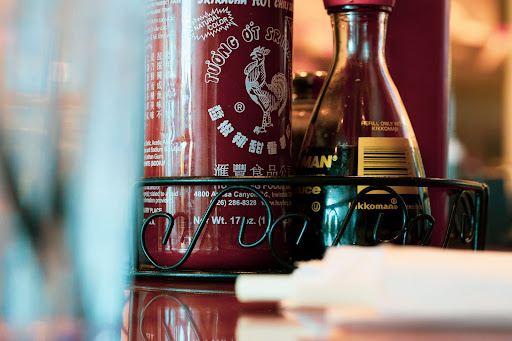If you come up with a great idea and share it with the world, chances are that others will want to imitate it and capitalize on your innovation. That’s why trademarks, patents, and copyrights exist. By taking the proper precautions to protect your intellectual property, you can ensure that you and those in business with you are the only people who can profit off your own creative ideas. Failing to do so can mean the market becomes oversaturated in copycats and product imitations.
Let’s take a look at one popular hot sauce that stands out as an example of a generic product due to a lack of trademarking.
Huy Fong Foods’ Sriracha Sauce
In 1980, Vietnamese-born immigrant David Tran opened Huy Fong Foods. Initially, he sold his invented hot sauce out of a van in Los Angeles, which was met with success: he made $2,300 in his first month in business. His new hot sauce, sriracha, was composed of red chilies, garlic, and vinegar. It quickly grew in popularity. As it did, other food companies began to look for ways to replicate it.
This was, as it turns out, fairly easy to do. Tran had trademarked his rooster trademark — something he chose because he was himself born in the Year of the Rooster. However, he never trademarked the sauce itself. Soon, sriracha sauce became a victim of product imitation by Taco Bell, Kikoman, Trader Joe’s and more.
The good news for Huy Fong is that while Tran never obtained trademark registration for sriracha sauce, no one else is able to, either. Competitors have tried, but their trademark applications were denied, as sriracha sauce was seen as “too generic.” Instead, it has become something that everyone can recreate and sell and no one can trademark.
The Impact On Huy Fong and the Impact of Failing To Obtain Trademark Registration For Your Business
Despite a lack of trademark registration for the sauce, Huy Fong took precautions to protect their recipe by keeping their factory closed off to outsiders. That is until 2014, when Huy Fong began giving public tours of their factory. However, Tran has said that he isn’t very worried about other companies using the term “sriracha” or recreating their own versions of sriracha sauce.
Tran calls other companies using the term sriracha “free marketing,” because most people still associate sriracha with his brand. It’s worth noting that he will likely never be able to trademark sriracha sauce now. And while Huy Fong Foods has met with success because of their sriracha sauce, you have to wonder how much success they would have been met with if they were the only food brand that could create sriracha sauce. As it is, they’ve reached a “glass ceiling” in which their sriracha is still popular, but there will always be other — sometimes cheaper — product imitations out there.
It may be a very different story for small businesses or businesses that are just starting out. What if you’re just starting out? The “genericide” of some of your best brand elements could make it so that the market around you quickly becomes “oversaturated” with something that was your idea in the first place.
Huy Fong may have been a rare survivor of terrible trademarking errors, but there is no question that the value of the company and Huy Fong’s return on investment (ROI) was greatly diminished due to the lack of legal protection for their brand. Most businesses who fail to protect their intellectual property are not so lucky and end up being put out of business as soon as the competition starts copying.
Your IP attorneys at Garcia Zamor can make it easy for you to obtain all the trademark registrations you need and protect your business. We will draft and file the application, cover the trademark fees, and monitor your application process as well as other relevant trademark registrations. Contact us today to learn more about how we can help you or to schedule a consultation.







